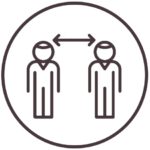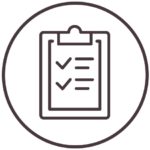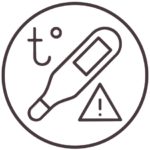COVID-19 Developments and Legal Updates
Think: Roadmap to recovery
COVID-19 hit us all like a proverbial freight train. In a short period of time we all went from business as usual to the new normal. From social distancing to mass lay-offs to essential businesses figuring out how to stay open, COVID-19 has impacted all aspects of our lives. The past few weeks have been challenging on many different levels – personal and professional.
However, we are starting to see some positive signs about the future. Public health officials are starting to express some cautious optimism (https://www.theglobeandmail.com/politics/article-theresa-tam-says-reason-for-cautious-optimism-as-epidemic-growth/). The number of new cases in most of Atlantic Canada appears to be leveling out. (https://www.apec-econ.ca/covid/covid19canada/)
There is no question we are “weeks” away from any easing of the COVID-19 restrictions (https://www.cbc.ca/news/politics/covid19-restrictions-lockdown-1.5531482). However, at Stewart McKelvey we have started to think about what we can do next, both as a significant employer in Atlantic Canada and as trusted advisors to help our clients navigate the next phase.
What businesses will need to open back up
According to the Premiers and the Prime Minister, any re-entry will be staged. This means that companies will need to develop a plan that outlines what ramp up looks like – which parts of the business will need to be present during start-up and which employees will need to be part of that process.
In addition, employers will require a new occupational health and safety plan. What could this include?
Social distancing – Yes
We are expecting some level of social distancing will be required for months to come. This will require a review of your workplace to determine what physical changes need to be made to ensure employees are always six feet apart. Desks may need to be moved, lunches staggered, movement coordinated and some employees may have to continue to work from home.
Health information – Yes
Typically, there is risk with delving into the details of any employee’s health. However, we expect that best practices when we return to work will include requiring employees to report if they are either experiencing any COVID-19 symptoms or if they have been exposed to a known case of COVID-19. Until public health guidelines change, any such employees must stay home and follow the directives of public health.
Masks – Likely
We are seeing that masks are required in many countries and areas where restrictions are starting to be eased – Germany, Austria, Spain, and New York. There has been no guidance yet in Atlantic Canada, but employers should consider sourcing plans in the event that masks become required or part of the new normal.
Temperature checks – Maybe
Temperature checks for employees in China are widespread (according to news reports). There are a number of businesses in Atlantic Canada who have already implemented temperature checks. There are some logistical issues associated with instituting temperature checks and we all know that a normal temperature does not necessarily equate to a negative test. However, this is one more safety tool that employers should consider.
COVID-19 testing – Unknown
Medical workplace testing raises various privacy and human rights issues. However, the first step is to have a reliable test that can be safely administered. Once a reliable and safely administered test is available, all employers will have to seriously consider acquiring and administering such a test.
We continue to monitor the best practices of countries that are starting to ease restrictions to see what is effective and what is not.
What challenges lie ahead
We have also been considering what other challenges our clients will face as we move to the next phase of the pandemic. There are many – but today we focus on two.
What will happen to the school year?
Germany, Iceland and Denmark are starting a controlled opening of schools. The Governor of New York has said “you can’t restart the economy fully without restarting schools” (https://www.usnews.com/news/education-news/articles/2020-04-13/andrew-cuomo-bill-de-blasio-battle-over-opening-schools-and-the-economy). Provinces are taking a slightly different approach. New Brunswick has said that schools are closed for the year. On the other end of the country, the British Columbia Minister of Education has indicated that students could be back in the classroom before the end of the school year. (https://www.cbc.ca/news/canada/british-columbia/minister-fleming-bc-schools-covid19-1.5531925).
To be clear, public health concerns should take priority, but the reality for many employees is that the return to work will be very challenging if there are no schools, daycare or summer camps.
What will happen to the economy?
There is no question, many are predicting dire consequences for the economy. However, the Governor of the Bank of Canada recently expressed some optimism: https://youtu.be/mSfFH1EM1eQ.
Regardless – bouncing back is going to take work. However, as David McKay, the Chief Executive of Royal Bank of Canada recently noted, if Canadians work together, we can “bend the economic curve back in our favour”.
This article is provided for general information only. If you have any questions about the above, please contact a member of our Labour and Employment group.
Click here to subscribe to Stewart McKelvey Thought Leadership articles and updates.




